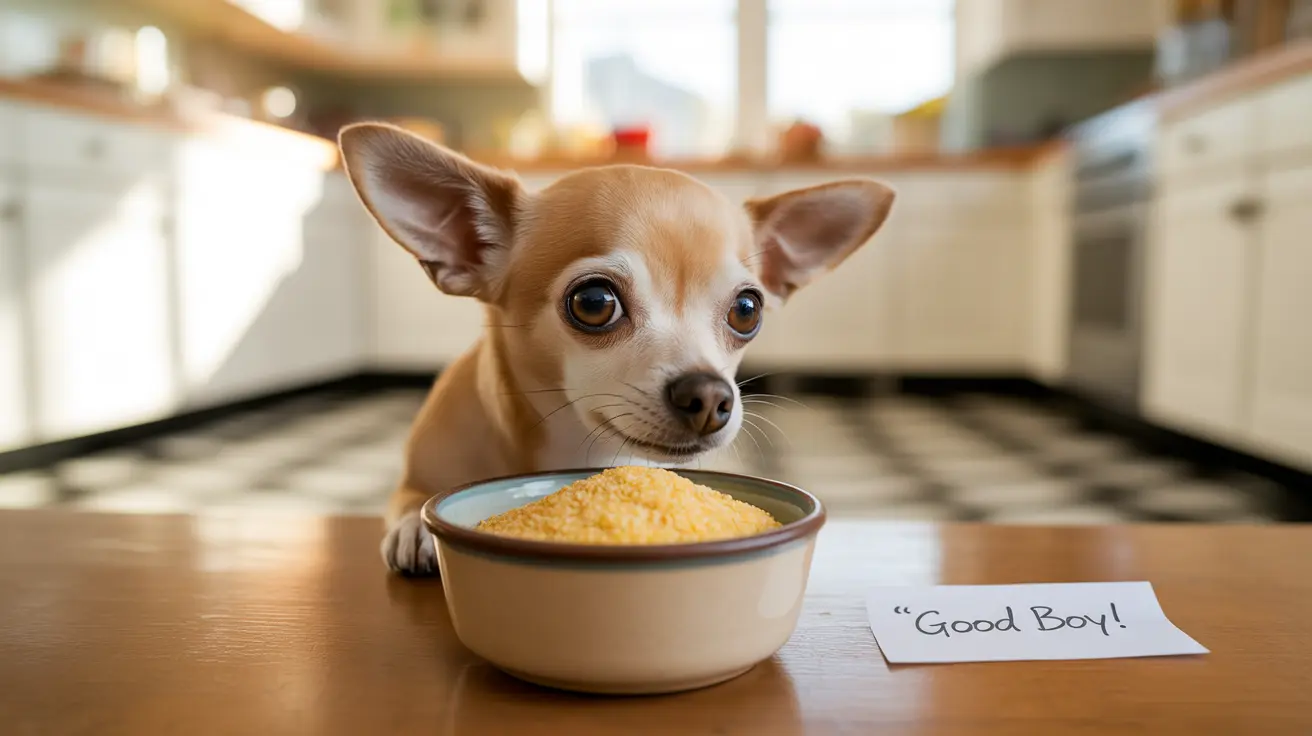As pet owners become more conscious about their dogs' diets, questions about common ingredients like cornmeal frequently arise. Cornmeal, a staple ingredient in many commercial dog foods, has sparked both interest and concern among pet parents. This comprehensive guide will explore the safety, benefits, and potential risks of feeding cornmeal to your canine companion.
Understanding the role of cornmeal in your dog's diet is crucial for making informed decisions about their nutrition. Let's dive into everything you need to know about this common ingredient and its impact on canine health.
What Is Cornmeal and Its Role in Dog Food?
Cornmeal is created by grinding dried corn kernels into a coarse powder. In dog food, it serves multiple purposes: it acts as a carbohydrate source, helps bind ingredients together, and provides certain nutritional benefits. Commercial pet food manufacturers often include cornmeal because it's cost-effective and offers reliable energy content.
Nutritional Benefits of Cornmeal for Dogs
When properly processed, cornmeal offers several nutritional advantages for dogs:
- Essential carbohydrates for energy
- Moderate protein content
- Omega-6 fatty acids, particularly linoleic acid
- Fiber for digestive health
- Various vitamins and minerals, including:
- Vitamin B3 (Niacin)
- Vitamin B1 (Thiamine)
- Vitamin E
- Phosphorus
Safety Considerations and Potential Risks
While cornmeal is generally safe for dogs, there are several important factors to consider:
Digestibility Issues
Some dogs may experience difficulty digesting cornmeal, particularly if it's not properly processed. Signs of digestive issues can include:
- Bloating
- Gas
- Loose stools
- Stomach discomfort
Allergic Reactions
Though relatively uncommon, some dogs may have corn allergies. Watch for symptoms such as:
- Itching
- Skin irritation
- Ear infections
- Gastrointestinal upset
How to Safely Include Cornmeal in Your Dog's Diet
If you're considering adding cornmeal to your dog's diet, follow these guidelines:
- Start with small amounts to test tolerance
- Monitor for any adverse reactions
- Use only properly processed cornmeal
- Maintain appropriate portion sizes
- Consider your dog's overall dietary needs
Frequently Asked Questions
Is cornmeal safe for dogs to eat and what nutritional benefits does it offer?
Yes, cornmeal is generally safe for dogs to eat. It provides carbohydrates for energy, moderate protein content, essential fatty acids, and various vitamins and minerals. However, it should be part of a balanced diet and not the primary ingredient.
Can feeding my dog cornmeal cause digestive problems or allergies?
While most dogs tolerate cornmeal well, some may experience digestive issues or allergic reactions. Watch for symptoms like gastrointestinal upset, itching, or skin problems. If these occur, consult your veterinarian.
How should cornmeal be prepared or introduced in a dog's diet for best digestibility?
Cornmeal should be properly cooked and introduced gradually into your dog's diet. Start with small amounts mixed into their regular food and monitor their response. Only use processed cornmeal intended for consumption, not raw or unprocessed corn products.
Does cornmeal contribute to weight gain in dogs and should it be limited?
As a carbohydrate-rich ingredient, cornmeal can contribute to weight gain if fed in excess. Portion control is important, and the amount should be adjusted based on your dog's size, activity level, and overall caloric needs.
What are the differences between cornmeal and other corn products in dog food like corn gluten meal?
Cornmeal is made from ground whole corn kernels and provides primarily carbohydrates, while corn gluten meal is a protein-rich byproduct of corn processing. They serve different nutritional purposes in dog food formulations, with corn gluten meal being more concentrated in protein.
Conclusion
Cornmeal can be a safe and nutritious ingredient in your dog's diet when properly prepared and fed in moderation. While it offers several nutritional benefits, it's important to consider your individual dog's needs, health status, and any potential sensitivities. Always consult with your veterinarian about the best dietary choices for your specific pet.






